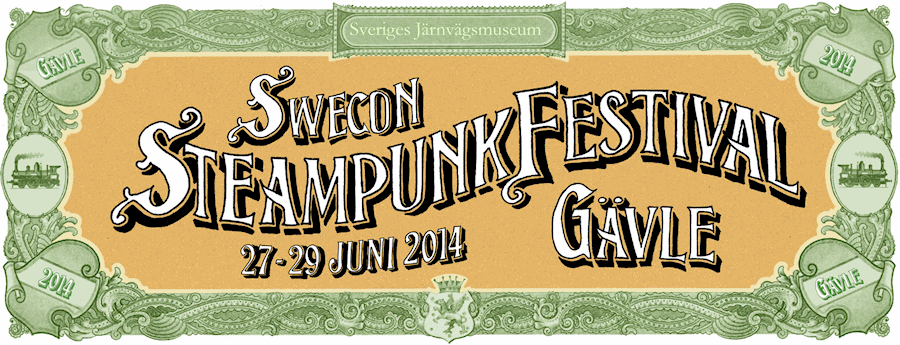Vi antar att ni redan har väntat på att få öppna present nummer tre. I dag får ni en intervju med Mike Perschon, vår Steampunk-scholar. Njut av läsningen!
1) If you were to give away a Steampunk-book for Christmas, which one would it be?
Mike: Just one? It would really depend on who I was giving it to, but if I could only pick one, it would be Scott Westerfeld’s Leviathan in its original hardcover; it is a beautiful book to just hold and look at, and Keith Thompson’s art is gorgeous. Plus, the story appeals equally to male and female readers, and if they aren’t snobs, Young Adult books are fun for everyone to read, regardless of age.
2) What do you find most fascinating about Steampunk?
Mike: I get most excited when I start reading a book using the steampunk aesthetic, and realize that the author has really thought through the ramifications of whatever changes they’ve made to history. Even if that’s just for fun, like in Gail Carriger’s Parasol Protectorate Books, I am most fascinated by world building. The steampunk books I find least interesting are the ones that just throw in big ideas and changes without regard for why that would be happening.
3) In your opinion, what are the main parallels or differences between Science Fiction /Fantasy and Steampunk?
Mike: Steampunk is science fiction, insofar as it is about technology, and is fantasy insofar as it does things with technology that are either very improbable or simply impossible. I don’t think of steampunk as a genre category unto itself, Rather, it is a style that affects science fiction and fantasy. Some steampunk is very close to pure science fiction, attempting to ensure that the technology obeys the laws of physics – books like Gibson and Stirling’s Difference Engine or Cherie Priest’s Clockwork Century series are examples of this. Some steampunk is much closer to fantasy, with technology that works more like magic than science; books like James Blaylock’s Adventures of Langdon St. Ives series or Stephen Hunt’s Jackelian are examples of this. I’ve joked that I’d like to make a t-shirt that says, ”Steampunk: Looks like Science, Works like Magic.”
4) Is there an author (dead or alive) you really would like to meet, and if so, why?
Mike: For dead authors, I’d have to say Robert Jordan, author of the Wheel of Time series. I have so many questions for him about his writing process over the nearly 20 years he worked on that series. For living authors, I’ve been lucky enough to meet many of the steampunk writers I would be interested in talking with: Gail Carriger, Arthur Slade, Cherie Priest, Paul Guinan and Anina Bennett, and James Blaylock. To be honest, I’d love to meet Guillermo del Toro, who counts as an author for his Strain series, because I love everything he’s done, and we share a lot of the same interests in fandom.
5) In recent years, Steampunk has become very popular in Sweden; what is the situation like in Canada?
Mike: Canada has a long history of catching a fad when it’s already reached its peak in the United States. I think that’s the situation for steampunk here. It is declining in popularity in the States, but we just had an event here in Edmonton that reminded me of the first big steampunk convention in the US back in 2008. I think steampunk suits our history, since we were the British colony that politely waited to be released to live on our own. So many Canadians have a strong identification with the Victorian look.
6) Ursula LeGuin said that Science Fiction /Fantasy is not about the future but about the present. Does something similar apply to Steampunk, too?
Mike: All writing says something about the culture that produces it. People mistakenly think that tales in other time periods or imaginary lands don’t speak to our current situation. I think that steampunk, because of the wide application of the aesthetic in multiple genres, says many things. But it primarily speaks of nostalgia for another time, which is obviously about dissatisfaction with our current world. That said, the same is true for much of fantasy and SF – speculative literature allows us to escape for a time, and at its best, teaches us how to reengage with the real world when our escape is over.
7) Finish following sentence: ”Steampunk taking place in space…”
Mike: Steampunk taking place in space is a lovely thing: just read Philip Reeve’s Larklight or Kenneth Oppel’s Starclimber to see what I mean!





